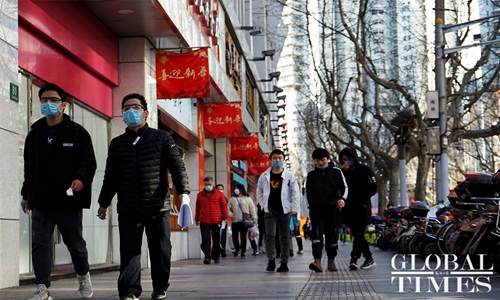SOURCE / INDUSTRIES
Guesthouses mostly vacant in China with 90% orders cancelled as epidemic takes toll

File photo
The coronavirus outbreak has dealt a head-on blow to the once-buoyant guesthouse industry in China, resulting in a cancellation rate of about 90 percent, and industry insiders are speculating about delayed IPOs for leading platforms in 2020, such as Airbnb.
In the past two months, most guesthouses have been empty, Beijing-based consulting and research firm Analysys told the Global Time that on Airbnb, the number of monthly active users decreased by 7.33 percent in January month-on-month, and Xiaozhu by 8.39 percent.
Leading Chinese guesthouse booking platform Tujia confirmed to the Global Times that a great number of orders have been cancelled on the platform in the past two months. Hosts in Hubei, the epicenter of the coronavirus, Northwest China's Shaanxi Province, Beijing and Southwest China's Chongqing have been most affected.
"Leading guesthouse booking platforms, namely Airbnb, Tujia and Xiaozhu are all losing money, putting the industry at a standstill. The operating pressure will slow down the pace of their market expansion and profits, and to some extent, upset their IPO plans," Ji Zhiying, travel industry analyst at Analysys, told the Global Times.
She said the guesthouse industry's annual revenue in China will drop by 10 to 15 percent.

Guests hold a party at a guesthouse of Shehouse in Shanghai. Photo: Courtesy of Ren Peiying
Ren Peiying, founder of Shehouse, never expected most of her 50 guesthouses in Shanghai to be empty during the past Spring Festival.
"Our staff prepared lanterns, Spring Festival couplets, red envelopes and wine for our guests before the festival, but few of them came," Ren said, adding the company shut down online bookings on January 26.
Charging between 900 yuan ($129.8) and 3,000 yuan per night, Ren's guesthouses are high-end houses in the industry. Some of the houses are old Shanghai-style villas and popular among guests. She told the Global Times for a brand like hers, cash flow is a problem.
"The cost of house rent and labor totals 500,000 to 600,000 yuan per month. If I assume the industry can get a full recovery by May, I would have a financing gap of at least 1.5 million yuan from February to April," Ren said, noting the guesthouses' income in February decreased by 23.1 percent year-on-year.
However, Ren refused to wait. Earning the bread for her 20-some staff, she came up with measures to save the company herself.
On Valentine's Day, she gave half-price discounts on bookings before April 13, 2021. Ren also allowed her housing designers to accept design orders from other clients in order to ease the cash flow tension.
Airbnb, which has ambitions in the Chinese market, announced a fund of $10 million to support hosts in the next few years during the recovery period of the local tourism industry.
The money is meant to help hosts with financial losses due to cancelled reservations and fees, and create a reward program for hosts who have actively supported the community during the outbreak, an Airbnb spokesperson told the Global Times.
According to the company's full-refund "extenuating circumstances" policy, it would allow guests and hosts to cancel orders without charge if their booking is in the Chinese mainland, South Korea or parts of northern Italy, or if guests are coming from those locations.
In 2019, guesthouse industry in China reached 15.68 billion yuan, up 34.4 percent year-on-year, according to Analysys.

